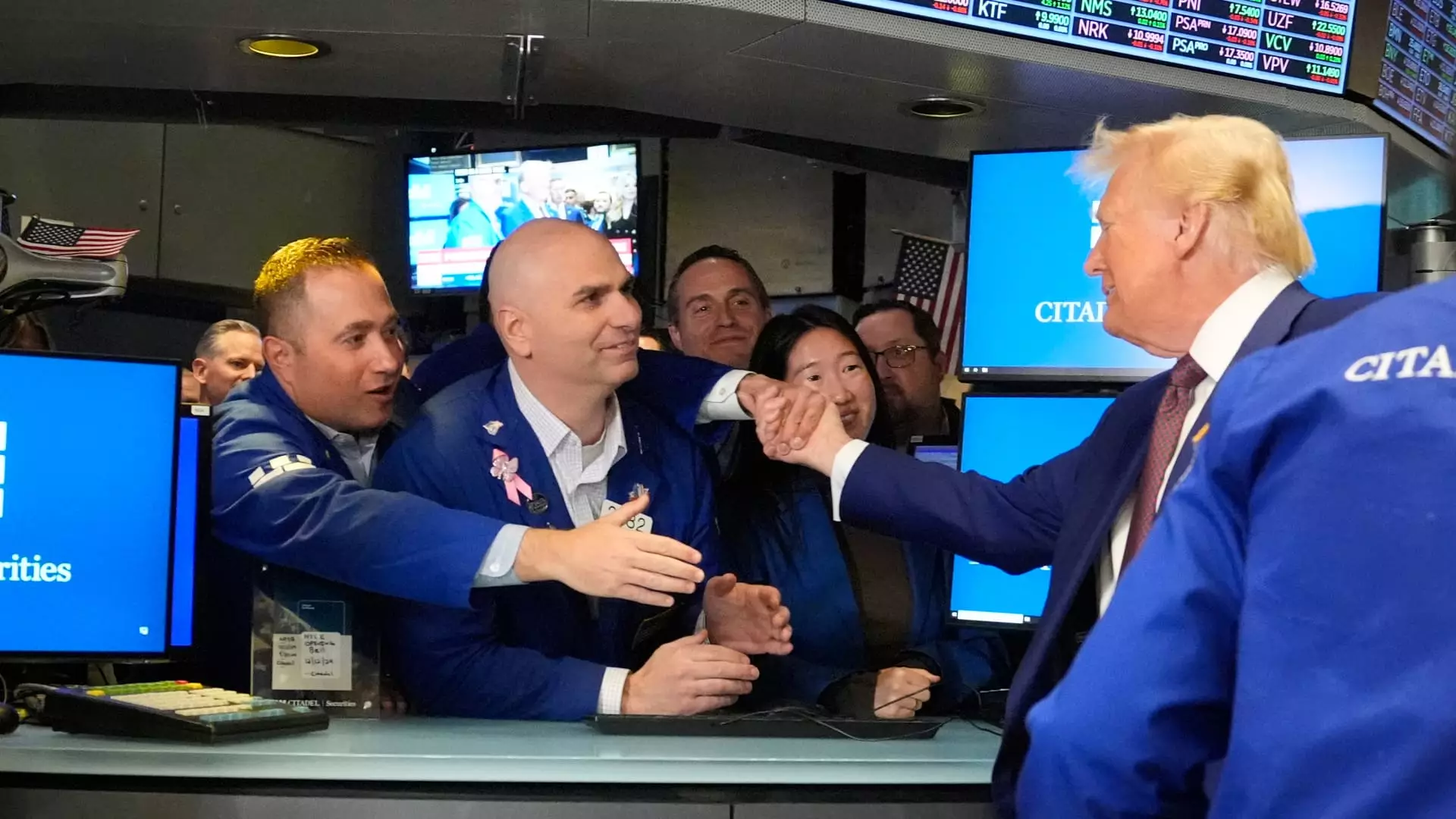Following his symbolic ringing of the opening bell at the New York Stock Exchange, President-elect Donald Trump refrained from directly urging investors to purchase more stocks. During an interview with CNBC’s Jim Cramer, Trump expressed caution about making any proclamations that may inadvertently lead to market fluctuations. His reluctance can be interpreted as an awareness of the volatile nature of the stock market, which is often susceptible to both external and internal shocks. This measured approach reflects a broader strategy of cautious optimism that he seems to be adopting as he prepares for his presidency.
The Impact of Trump’s First Term on the Market
Throughout his tenure, Trump frequently utilized stock market performance as a metric for economic health. Under his administration, the S&P 500 experienced an impressive increase of nearly 68%. Factors contributing to this growth included significant corporate tax cuts and a supportive monetary policy from the Federal Reserve, which maintained low-interest rates to stimulate investment and consumer spending. However, attributing market gain solely to his policies overlooks the complexities of the economic landscape in which various interacting factors play crucial roles.
Tax Policies and Their Implications
During his recent speech at the Stock Exchange, Trump hinted at the potential for further tax reductions, suggesting a drop to 15% for companies that manufacture within the U.S. This proposal could resonate positively with a corporate sector eager for tax relief, but it raises questions about the sustainability of such initiatives. While tax cuts could incentivize domestic production, they also risk increasing the national deficit if not balanced with adequate spending controls. This tension underscores the challenges facing any administration seeking to stimulate economic growth while maintaining fiscal responsibility.
The presence of prominent Wall Street figures such as Goldman Sachs CEO David Solomon and hedge fund manager Bill Ackman at Trump’s bell-ringing event underscores a level of support from the financial community. Ackman articulated a compelling narrative about the interconnection between corporate prosperity and national economic growth, contending that successful businesses drive stock market performance, which in turn benefits wage growth, job creation, and broader economic opportunity. This perspective echoes the traditional view of capitalism: that a thriving business environment ultimately creates win-win scenarios for all economic stakeholders.
While Trump may be cautious in the short term, he maintains a positive long-term outlook, suggesting that the U.S. economy is capable of remarkable achievements. This optimistic view is undoubtedly rooted in the belief that the combined strength of American entrepreneurship and innovation can lead to sustained economic growth. However, realizing this vision will require navigating various challenges, including workforce readiness, regulatory hurdles, and international competition.
As Trump steps into his new role, his approach to the stock market and economic policy resembles a careful balancing act. By fostering a climate of positivity while also acknowledging market volatility, he may be paving the way for a strategic and potentially transformative economic agenda. The effectiveness of these policies will ultimately determine not just the fortunes of the stock market, but also the economic well-being of the nation as a whole.

